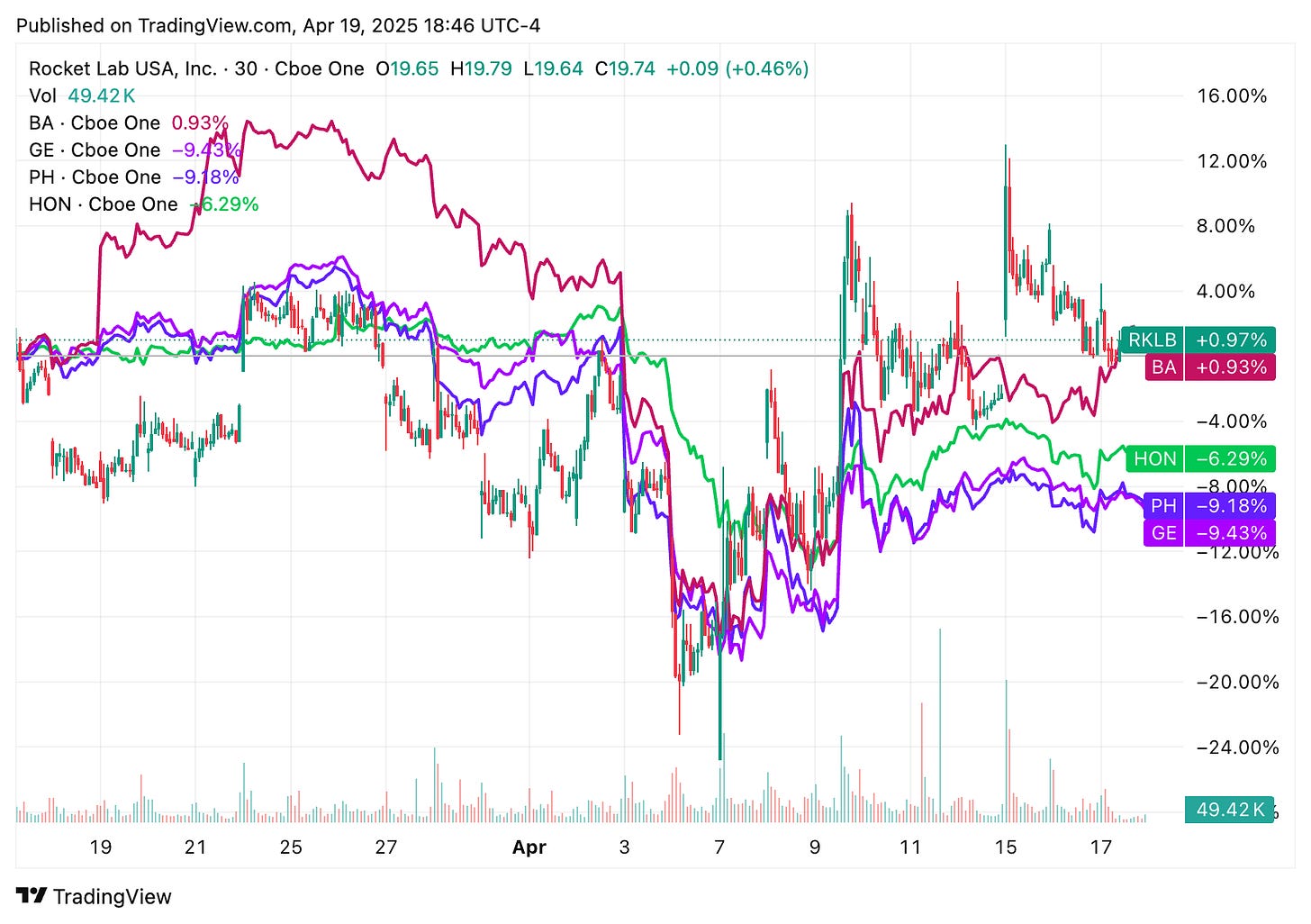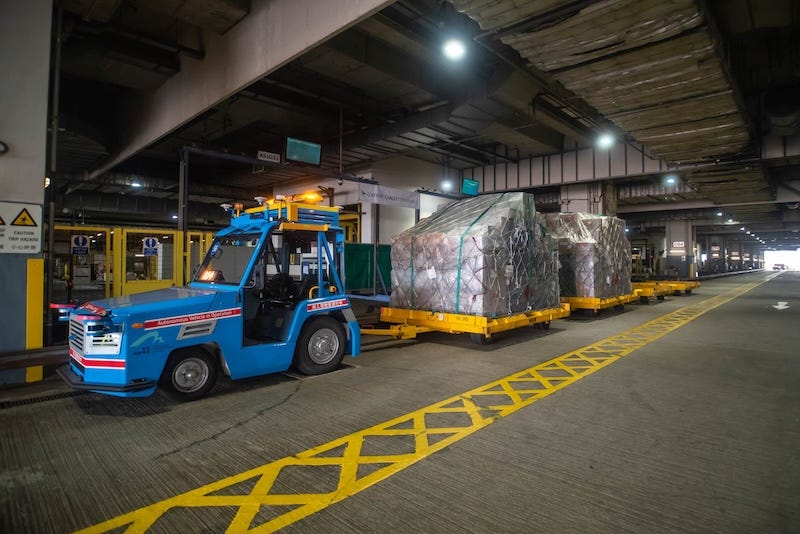Go for the Race, Stay for the Bionics 🦿
This week: Humanoids run a marathon, a bionic arm can crawl around on its own, faster Injection molding with a 3D-printed mold, flexible job-shop scheduling, and hydrogen-based ironmaking.
Shop Talk
Capturing this week's zeitgeist
The Beijing E-Town Humanoid Robot Half-Marathon reveals we're nowhere near a definitive "AlphaGo moment” for bipedal robotics. While AlphaGo decisively defeated world champion Lee Sedol in 2016, demonstrating superhuman capabilities in a complex cognitive domain, humanoid robots still struggle with basic mobility. The winning robot, X-Humanoid's Tiangong Ultra, completed the race in 2 hours and 40 minutes, far behind even casual human runners, requiring human guidance and multiple battery changes. With only 4 of 21 robots finishing under the cutoff time and many experiencing catastrophic failures, this event highlights the vast complexity gap between mastering board games and achieving reliable physical embodiment. Unlike AlphaGo's clean victory, this marathon demonstrated that humanoid robotics remains in its awkward adolescence, with basic locomotion challenges still unsolved (despite Bain’s optimism).
Assembly Line
This week's most influential Industry 4.0 media.
🦾 World’s most advanced bionic arm can crawl around on its own
Bristol-based Open Bionics spent four years developing its latest Hero bionic arm, which it claims is the world’s most advanced robotic limb. “It’s twice as fast and twice as strong as leading bionic hands while also being the lightest hand available – and the first ever to be fully waterproof and completely wireless,” Samantha Payne, co-founder and CEO of Open Bionics, told The Independent.
The device uses wireless EMG electrodes called MyoPods that sit on top of an amputee’s arm and read their muscle signals. These signals are then used to command the bionic fingers to move.
Read more at The Independent
Hummus MEGA FACTORY: How Hummus is Made in Industrial quantities!
Development of Aluminum Scandium Alloys for Hydrogen Storage Valves
✍️ Author: Francisco García-Moreno, Tillmann Robert Neu, Markus Eberl, Paul Hans Kamm, Hans-Wolfgang Seeliger
For the development of aluminum scandium alloys to produce a hydrogen storage valves, various aluminum alloy series with different Sc and Zr contents are tested. The alloys are mainly characterized by hardness measurements and tensile tests. The hardening curves are recorded for different temperatures and compositions, and the selected parameters are validated with the corresponding mechanical tests. The alloys 5083 + 0.2% Sc and AlSi16Mg1Sc0.4 are selected for the production of hydrogen valves by forging and additive manufacturing.
Amogy Accelerates Commercialization of Ammonia Cracking Catalyst in Partnership with JGC for a a pilot project designed to advance large-scale ammonia cracking technology for low-carbon hydrogen production. /Amogy/
Airbus Ventures Invests in Fourier’s, pioneering on-site, on-demand, hydrogen production systems, with a $18.5M Series A Funding Round /Business Wire/
🖨️ Faster Injection Molding With 3D Printed Mold
Physically informed machine learning for the control of L-PBF processes /TIJoAMT/
🗓️ Learning-Guided Rolling Horizon Optimization for Long-Horizon Flexible Job-Shop Scheduling
✍️ Author: Sirui Li, Wenbin Ouyang, Yining Ma, Cathy Wu
Long-horizon combinatorial optimization problems (COPs), such as the Flexible Job-Shop Scheduling Problem (FJSP), often involve complex, interdependent decisions over extended time frames, posing significant challenges for existing solvers. While Rolling Horizon Optimization (RHO) addresses this by decomposing problems into overlapping shorter-horizon subproblems, such overlap often involves redundant computations. In this paper, we present L-RHO, the first learning-guided RHO framework for COPs. L-RHO employs a neural network to intelligently fix variables that in hindsight did not need to be re-optimized, resulting in smaller and thus easier-to-solve subproblems. For FJSP, this means identifying operations with unchanged machine assignments between consecutive subproblems. Applied to FJSP, L-RHO accelerates RHO by up to 54% while significantly improving solution quality, outperforming other heuristic and learning based baselines. We also provide in-depth discussions and verify the desirable adaptability and generalization of L-RHO across numerous FJSP variates, distributions, online scenarios and benchmark instances. Moreover, we provide a theoretical analysis to elucidate the conditions under which learning is beneficial.
Read more at OpenReview and MIT News
Computational Complexity of Air Travel Planning /ITA Software/
A bi-level supply chain resilience model using cloud manufacturing /Journal of Manufacturing Systems/
New Product Introduction
Highlighting new and innovative facilities, processes, products, and services
Primetals Technologies with Strategic Partner Mitsubishi Corporation, voestalpine, and Rio Tinto to Implement Hydrogen-Based Ironmaking Plant
Primetals Technologies, together with its strategic partner Mitsubishi Corporation, Rio Tinto, a leading mining and materials company, and globally leading steel and technology group voestalpine, signed a cooperation agreement to fast-track the development of fluidised bed and smelter technologies. The participants will implement and operate an industrial-scale prototype plant featuring a new process for potential net-zero CO2 emissions ironmaking at the voestalpine site in Linz, Austria. Startup of the plant is scheduled for mid-2027.
The new ironmaking process with a projected capacity of three tons of hot metal per hour is based on the HYFOR and Smelter solutions from Primetals Technologies. HYFOR is the world’s first direct reduction technology for iron ore fines that does not require any agglomeration steps. Since 2021, Primetals Technologies has operated a pilot plant on voestalpine’s premises in Donawitz, Austria, and has run numerous successful test campaigns. The Smelter is a furnace powered by renewable energy used for melting and final reduction of direct reduced iron (DRI). It produces potential net-zero CO2 emissions hot metal for the steelmaking plant.
Read more at Rio Tinto
Rio Tinto and AMG Metals & Materials to assess low-carbon aluminium project in India /Rio Tinto/
🚛 Cathay Cargo Terminal pioneers Autonomous Electric Tractor operations for cargo
Cathay Cargo Terminal has completed the first end-to-end trial of Autonomous Electric Tractor (AET) operations for direct towing from the inside of the terminal to the West Cargo Apron (WCA) at Hong Kong International Airport (HKIA).
The trial involved a fully autonomous electric tow-tractor pulling four cargo dollies into the Cathay Cargo Terminal and driving itself to the correct cargo transfer gate for loading. After loading, the AET drove itself out of the terminal and successfully completed its journey across HKIA to the furthest cargo apron, the WCA, delivering the cargo ready to be loaded directly onto a Cathay Cargo flight.
A unique feature of this initiative is the precise docking solution, enabling the AET’s towing dolly chains to automatically align with the transfer deck for seamless Unit Load Device (ULD) loading. Enhanced security features also allow the AET to be digitally checked into and out of the terminal without compromising security.
Read more at Cathay Pacific
Daimler Truck delivers latest iteration of autonomous-ready truck platform to Torc /Daimler Truck/

Business Transactions
This week's top funding events, acquisitions, and partnerships across industrial value chains.
How Does Benchmark Serve the Complex Industrials Market? /Benchmark/
🇺🇸 Mainspring Secures $258 Million in Financing to Scale Linear Generator Business; Adds Energy and Tech Leaders to Board
Mainspring Energy Inc. announced that it has secured $258 Million in a Series F financing round to expand the company's linear generator power business and operations as it grows in both manufacturing and customer sales. The company also has added two Board members with deep energy and tech industry operating experience – Tom Linebarger, former Chairman and CEO of global power solutions leader Cummins, and Bethany Mayer, former CEO of public technology company Ixia and former Board member of energy infrastructure giant Sempra.
Global investment and transformation company General Catalyst led the raise, joined by Amazon's Climate Pledge Fund, DCVC, Temasek, Marunouchi Innovation Partners, M&G Investments, Pictet Group, and Mainspring's earlier investors including Lightrock and LGT Bank, Khosla Ventures, and Gates Frontier, among others.
Read more at PR Newswire
🇺🇸 Parallel Systems Closes $38 Million Series B
Parallel Systems, the world's first autonomous battery-electric rail system, will launch its first commercial pilot in April after securing approval from the Federal Railroad Administration (FRA) to deploy its railcars along a 160-mile stretch of two Georgia railroads. The company has also closed its Series B funding round of $38 million, led by Anthos Capital, joined by Collaborative Fund, as well as Congruent Ventures, Riot Ventures and others. To-date the company has raised approximately $100 million in funding.
Parallel Systems is a U.S. based manufacturer and transportation technology innovator whose mission is to deliver a safer, more efficient and sustainable alternative to short-haul trucking. The company's autonomous battery-electric system delivers significant benefits, including: 1) enables railroads to grow by increasing their role in shorter-route transportation; 2) makes America's busiest roadways safer for motorists by decongesting; 3) reduces the costs of shipping; 4) creates high-skilled, high-wage jobs; 5) reduces pollution.
Read more at PR Newswire
🇰🇷 RLWRLD raises $14.8M to build a foundational model for robotics
✍️ Author: Kate Park
South Korean startup RLWRLD aims to solve this problem with a foundational AI model that it has built specifically for robotics by combining large language models with traditional robotics software. The company says this model will enable robots to make quick and agile movements and perform some amount of “logical reasoning” as well.
The startup is now coming out of stealth with 21 billion KRW (about $14.8 million) in seed funding. The round was led by venture capital firm Hashed; Mirae Asset Venture Investment and Global Brain also invested. Notably, RLWRLD has attracted a long list of big strategic investors — Ana Group, PKSHA, Mitsui Chemical, Shimadzu, and KDDI from Japan; LG Electronics and SK Telecom from Korea; and Amber Manufacturing from India.
Read more at TechCrunch
Gaps, Risks and Rewards: Robotics Foundation Models with Shaun Edwards of Plus One Robotics /The Robot Industry Podcast/
🇯🇵 EF Polymer Raises USD 6.6 Million in Series B First Close to Accelerate Global Expansion and R&D
EF Polymer, a deep-tech startup developing 100% organic super absorbent polymers, announced that it has raised JPY 1 billion (approx. USD 6.6 million) in the first close of its Series B round.
Founded with a mission to solve global water challenges and improve farmers' livelihoods, EF Polymer has created a bio-based alternative to petroleum-derived absorbents, helping reduce water and fertilizer use in agriculture while improving yields. Its materials are also expanding into non-agricultural applications such as cosmetics and personal care.
Read more at PR Newswire
Monarch Announces Savings Program with Dairy Farmers of America /Monarch/
Fictiv Announces Agreement to Join MISUMI
Fictiv, a global supply chain technology company, announced that it has entered into an agreement to be acquired by MISUMI Group Inc., a leading global supplier of mechanical components for the manufacturing industry headquartered in Japan. The all-cash transaction has a total consideration of $350 million, subject to closing adjustments. Once closed, Fictiv will join MISUMI.
Read more at PR Newswire
onsemi Withdraws Proposal to Acquire Allegro MicroSystems /onsemi/



